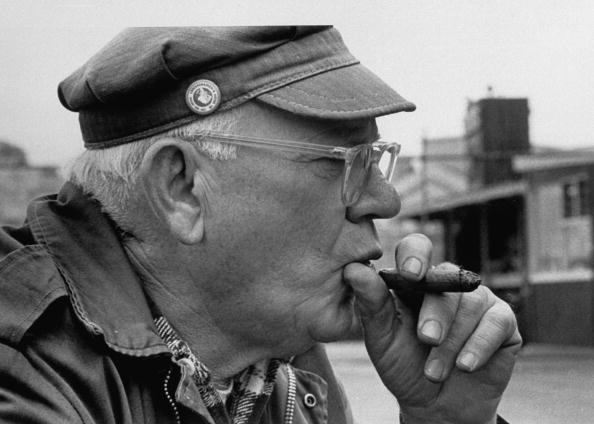What to make of Colin Kaepernick?
He rationalizes sitting for the national anthem by saying that “freedom, liberty, and justice” is “not happening for all right now.” He wears a Fidel Castro t-shirt to a subsequent press conference.
A referee flagged him in 2014 for using a racial slur that begins with “n” and ends, like so many primitive expressions of hatred, in “grrrr.” In 2016, Kaepernick, who denied using that ugly term two years ago, lectures the presidential candidates of the two major parties on their racism.
He entered the league displaying his Christianity to all by tattooing Bible verses, a cross, and various references to God and heaven all over his body. Now he reportedly “studies” Islam after dating MTV and radio personality Nessa.
Colin Kaepernick is a joiner. It may prove hard to persuade that a man sitting apart from his standing peers merits the “joiner” label. But the quarterback clearly teams up with a fanatical movement with numbers to rival the converts to the Church of the Holy Gridiron. He embraces causes that subsume the self. Who’s he running from?
The joiner takes himself very seriously. The rest of us face great hurdles in taking the joiner very seriously. He fervently throws himself into one cause only to experience wanderlust in searching for a new purpose, however fleeting, before repeating the process of imbuing meaning in his life.
Another famous San Franciscan, also involved in taxing blue-collar work, pegged other Colin Kaepernicks long before the birth of this Colin Kaepernick. Longshoreman philosopher Eric Hoffer wrote a book called The True Believer partly about how individuals lose their identities in mass movements. The true believer who lines up behind center Thursday night in San Diego repeatedly loses his identity in something bigger than himself—football arguably does this—only to shift course.

Longshoreman & author, Eric Hoffer holding cigar nr. mouth at docks. (Photo by Time Life Pictures/Pix Inc./The LIFE Picture Collection/Getty Images)
A poseur thug using ghettospeak on the field one season becomes a social justice warrior lecturing America on racism in another. A Christian so demonstrative that he permanently inks his body with symbols of his faith soon becomes a dabbler in Islam. A man who revels in demonstrations against his nation before the game wears at a press conference a few days later a t-shirt glorifying a dictator who executed nonconformists in a stadium on his Caribbean island-prison. If Colin Kaepernick confuses you, remember that he confuses himself, too.
On strolls through Golden Gate Park, in bars in the Tenderloin, and on breaks on the docks, Eric Hoffer jotted down aphorisms in hardcover notebooks. “To have a grievance is to have a purpose in life.” “Rudeness is the weak man’s imitation of strength.”“[H]ow perverse is the attitude of the weak toward their benefactors. They feel their generosity as oppression; they want to retaliate.” “There is perhaps in all misfits a powerful secret craving to turn the whole of humanity into misfits. Hence partly their passionate advocacy of a drastically new social order. For we are all misfits when we have to adjust ourselves to the wholly new.” “Mass movements can rise and spread without belief in a God, but never without belief in a devil.”
He couldn’t know Colin Kaepernick (He died four years before his birth). But he clearly understood him.
One gleans the impression from the quarterback’s vague pronouncements during his press availability on Sunday that he barely understands himself. “Something,” Kaepernick says, “needs to change.” “We have to unify and make a change,” he insists. The quarterback sermonizes that “there’s a lot of things that need to change, a lot of different issues that need to be addressed.”
Colin Kaepernick, meet Eric Hoffer.
“The craving to change the world is perhaps a reflection of the craving to change ourselves. The untenability of the situation does not by itself always give rise to a desire for change. Our quarrel with the world is an echo of the endless quarrel proceeding within us. The revolutionary agitator must first start a war in every soul before he can find recruits for his war with the world.”

COMMENTS
Please let us know if you're having issues with commenting.